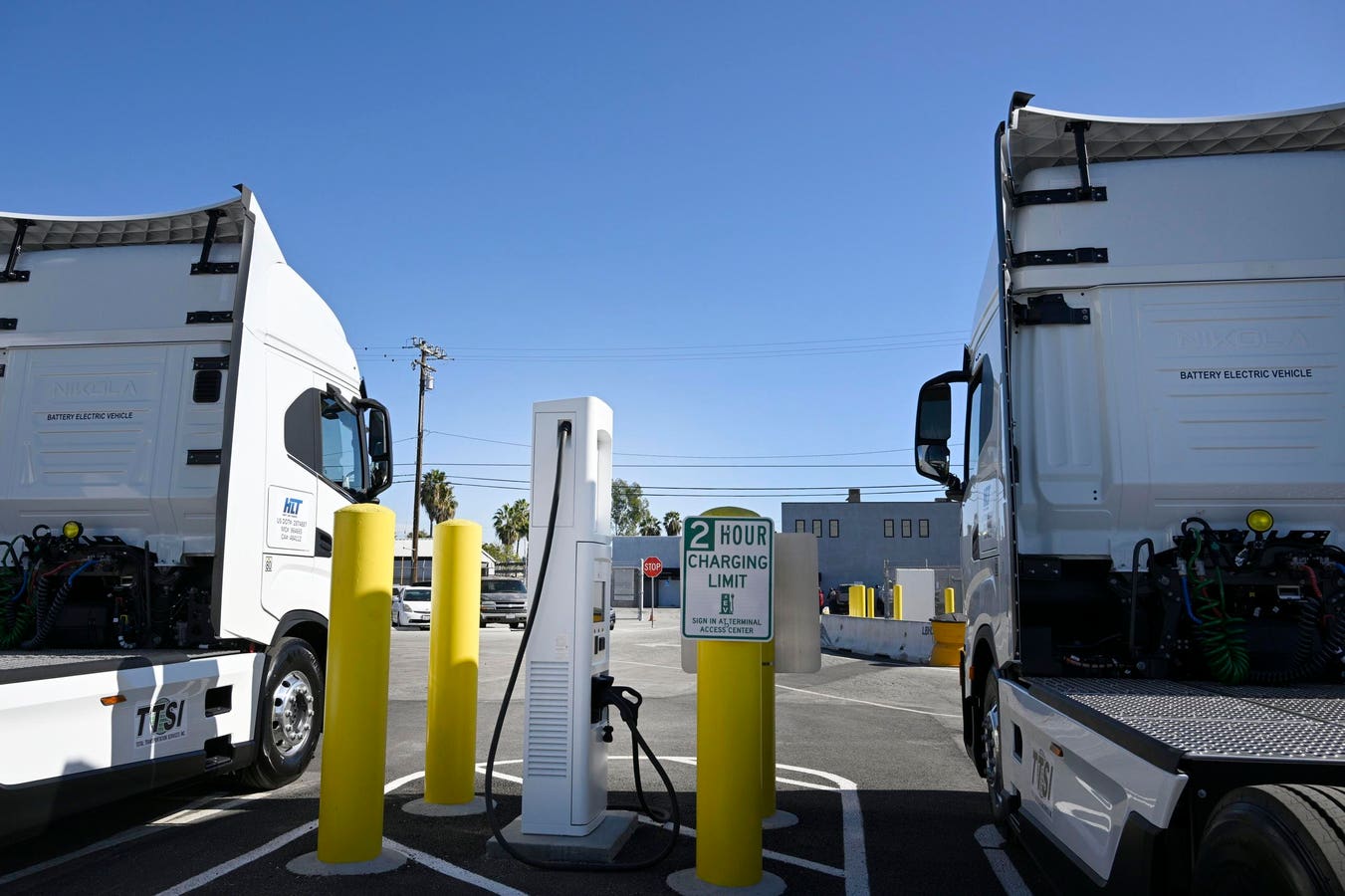
Majority Of Voters Back Tougher Truck Emission Limits, Survey Finds
Long Beach, CA – November 18: The Port of Long Beach became the first in the nation to open a … [+] publicly accessible charging station for heavy-duty electric trucks, in Long Beach on Friday, November 18, 2022. (Photo by Brittany Murray/MediaNews Group/Long Beach Press-Telegram via Getty Images)
MediaNews Group via Getty Images
Nearly three quarters of American voters would back tougher limits on tailpipe emissions from new trucks and other heavy-duty vehicles, according to a new survey.
The American Lung Association survey, which was carried out by the Global Strategy Group, found that 72% of respondents would support the Environmental Protection Agency implementing stronger limits on carbon emissions from heavy-duty vehicles, like tractor trailers, buses and delivery vans.
The poll of 1,600 people also found at least three in four Black (78%) and Hispanic (75%) voters support stronger standards, with bipartisan support across across Democratic, Republican and Independent voters.
More than three quarters (76%) of those surveyed said that the new limits would have a positive impact on the quality of the air we breathe, and 71% said that it would also have a positive impact on future generations of Americans.
And nearly seven in ten (69%) agreed that new limits would encourage innovation.
The poll findings were released as EPA is expected to soon finalize limits on greenhouse gas emissions from heavy-duty vehicles.
In February, the EPA announced new national ambient air quality guidelines for fine particulate matter, which is sometimes referred to as PM2.5 or soot.
The American Lung Association survey also found more than three quarters (78%) of those surveyed support the stricter standards for particle pollution.
And a similar number (77%) said that the new limits would have a positive impact on the quality of the air we breathe, and 73% said that it would have a positive impact on future generations of Americans.
The poll also found that an overwhelming 83% of voters supported prioritizing standards that clean up pollution in the most polluted American neighborhoods, with strong support across party lines.
Laura Kate Bender, the American Lung Association’s national assistant vice president, healthy air said in an interview the survey results reflect “strong public support for stricter limits on pollution”.
She also told me the recently announced EPA standards on particle pollution have proved to be “very popular” with the people surveyed by the association.
“The health-related arguments really resonate with people, the majority of whom would rather have cleaner air than dirty air,” said Bender.
“We know that cleaning up cars, as well as trucks and buses, is critical for public health, but it’s encouraging to see the public continues to see the benefit as well.”
Even after a simulated debate as part of the poll, which included arguments used by both proponents and opponents of the stronger soot standards, support remained strong at 68%.
“What’s more, when voters were forced to choose between pairs of statements arguing for and against the stronger standards, they overwhelmingly said they agreed more with the pro-standards statements,” said Global Strategy Group partner, Andrew Bauman in a statement.
“An overwhelming majority of voters believe the standards will encourage innovation, job growth and new technology rather than hurt the economy,” he added.
Melody Reis, the senior legislative and regulatory policy manager at the campaigning group Moms Clean Air Force said in an interview it would like to see the “strongest possible safeguards for climate pollution”.
Reis added transportation is also a very relatable issue for many Americans across the country.
“We’ve all been driving down the road behind these big trucks and seen the toxic emissions coming out of their tailpipes,” she told me.
“We know it’s not good for our bodies and we also know it’s not good for the climate.”


